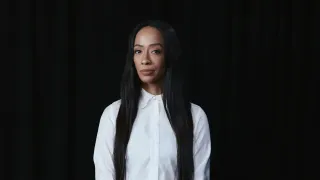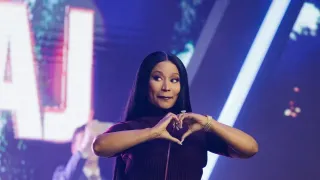July 17, 2023
Booking a Gay-Friendly Hotel in New York City
READ TIME: 3 MIN.
Are you planning a trip to the exciting city of New York and looking for a gay-friendly hotel? It has never been this simpler to locate a welcoming and inclusive place to stay, thanks to Misterb&b, the industry-leading network that connects LGBTQ+ travelers with welcoming accommodations. Discover a variety of gay-friendly hotels, get points, donate to worthy causes, and communicate with other gay people through their social networking platform.
Finding LGBTQ+ Friendly Hotels in NYC
Misterb&b offers a wide range of lodging options for the gay community while looking for a gay hotel in NYC. Their carefully chosen inventory guarantees that gay tourists can discover a safe and inclusive atmosphere, from hip design hotels to quiet boutique places. With Misterb&b, you can look into a wide variety of choices tailored to the requirements and interests of LGBTQ+ people.
Diverse Range of Accommodations
In New York City, Misterb&b provides a wide range of gay-friendly lodging options to suit various tastes, price ranges, and requirements. Misterb&b can help you find everything from an opulent hotel with cutting-edge services to a cozy bed and breakfast with a quaint ambiance. You can pick from various design hotels with distinctive aesthetics and hip vibes, guaranteeing a remarkable and eye-catching experience. These gay-friendly hotels offer an inviting and inclusive environment for gay guests, ranging from sleek and modern venues to boutique hotels with character.
Inspiration from Popular LGBTQ+ Bookings
If you're confused about where to begin your search for the ideal gay-friendly hotel in New York City, get ideas from the establishments that the LGBTQ+ community frequents the most. Discovering hidden treasures and cutting-edge places is easier with the help of Misterb&b, which offers insightful information about other travelers' choices. You can select lodgings that have already been screened and approved by gay people by looking into these well-liked options, giving you peace of mind while you're away.
Popular LGBTQ+ Hotels in New York City
Misterb&b highlights several well-known LGBTQ+ hotels in New York City that have won the respect and admiration of the neighborhood. Travelers who identify as gay have consistently received excellent experiences and services at these hotels. You can find hotels that come highly recommended and with excellent reviews by other gay visitors by taking a look at these popular options. These well-liked gay hotels provide an upgraded stay experience, from luxurious lodgings with breathtaking views to strategically located properties with easy access to attractions.
Supporting LGBTQ+ NGOs with Your Booking
By using Misterb&b to make a reservation at a gay-friendly hotel in New York City, you'll discover a welcoming environment and contribute to vital causes for the gay community. With a strong commitment to having a good impact, Misterb&b donates a part of each booking's earnings to LGBTQ+ non-governmental organizations (NGOs) worldwide.
Making a Difference
Your reservation with Misterb&b contributes to funding vital initiatives and assets for the gay community. Supporting LGBTQ+ NGOs helps programs that advance equality, offer assistance, and fight for the rights of gay people. These contributions significantly improve the lives of gay people by empowering organizations to establish safe places, provide counseling and mentoring services, and advocate for governmental reforms. Your choice to stay in a gay-friendly hotel transforms into a heartfelt demonstration of solidarity and support for the gay community, supporting its survival and advancement.
Conclusion
Misterb&b provides a unique experience for LGBTQ+ visitors looking to book a gay-friendly hotel in the diverse and welcoming metropolis of New York. They are the ideal travel companion due to their wide range of gay-friendly lodging options, insights from popular reservations, support for worthy causes, rewarding loyalty programs, and social networking tools. Choose Misterb&b for an exciting stay to embrace NYC's thriving gay community, connect with like-minded people, and contribute to sound change.






